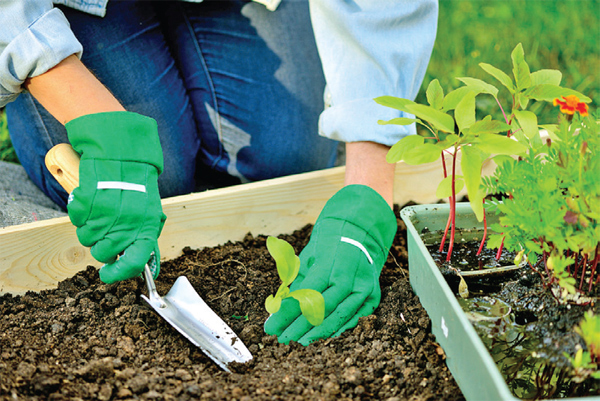Best Organic Soil For Growing Vegetables Choosing the best organic soil for growing vegetables is an essential consideration for any gardener aiming for a thriving, sustainable, and chemical-free garden. What is the best soil for organic vegetables Which growing mix a vegetable garden starting Best in pots raised bed How to make beds Organic Loam Roots plants.
Organic soil is more than just dirt; it is a living, breathing ecosystem teeming with microorganisms, nutrients, and organic matter that work together to provide plants with the nourishment they need to grow healthy and robust. Understanding the composition and benefits of high-quality organic soil, as well as how to prepare and maintain it, is crucial for producing nutrient-dense vegetables.
The foundation of great organic soil begins with its composition. The ideal organic soil consists of a balanced blend of sand, silt, and clay, which provides proper drainage, aeration, and moisture retention. This balance is known as loamy soil, and it is often considered the gold standard for vegetable gardening. Loamy soil allows roots to penetrate easily while retaining enough water and nutrients to support plant growth. Organic matter is another critical component, typically coming from decomposed plant material, compost, or aged manure. It serves as a natural fertilizer, improving soil structure and providing essential nutrients such as nitrogen, phosphorus, and potassium.
Soil pH plays a vital role in plant health and nutrient availability. Most vegetables thrive in soil with a pH between 6.0 and 7.0, which is slightly acidic to neutral. A soil test is an excellent way to determine the pH level and overall fertility of the soil. If the pH is too low, adding lime can help neutralize acidity, while sulfur can be used to lower a pH that is too high. Regular soil testing ensures that the balance remains optimal for vegetable growth.
Organic matter, in addition to providing nutrients, fosters a thriving microbial environment. Microorganisms such as bacteria, fungi, and earthworms break down organic material, releasing nutrients into the soil in a form that plants can absorb. Beneficial microbes also help protect plants from diseases by outcompeting harmful pathogens. Gardeners can encourage a healthy microbial community by incorporating compost and avoiding synthetic fertilizers and pesticides, which can harm beneficial soil life. Best Organic Soil For Growing Vegetables
Compost is one of the most effective ways to enrich organic soil. It is made from decomposed organic materials such as vegetable scraps, leaves, grass clippings, and manure. High-quality compost improves soil structure, enhances moisture retention, and supplies a broad spectrum of nutrients. Additionally, compost helps suppress soil-borne diseases and supports the proliferation of beneficial microbes. For best results, compost should be well-aged and fully decomposed before being added to the garden.
Mulching is another essential practice for maintaining organic soil health. Organic mulches such as straw, shredded leaves, and wood chips help regulate soil temperature, retain moisture, and reduce weed growth. As they break down, they contribute organic matter to the soil, further enriching its nutrient content. Mulching also protects soil from erosion and compaction, preserving its structure and aeration.
Cover cropping is a technique used to enhance soil fertility and structure naturally. Cover crops such as clover, alfalfa, and rye help prevent soil erosion, fix nitrogen into the soil, and improve its organic content when tilled under. This practice is particularly beneficial during off-seasons when garden beds are left fallow, as it prevents nutrient depletion and compaction while maintaining a healthy soil environment.
The choice of organic fertilizers can also significantly impact soil quality. Natural fertilizers such as bone meal, blood meal, fish emulsion, and seaweed extract provide essential nutrients without the risk of chemical buildup that comes with synthetic fertilizers. Each of these organic amendments offers specific benefits; for instance, bone meal is rich in phosphorus, which supports root development, while fish emulsion provides a fast-acting source of nitrogen for leafy growth.
Maintaining soil structure is crucial for long-term soil health. Over-tilling can disrupt the natural soil ecosystem, leading to compaction and loss of beneficial organisms. Instead, using no-dig gardening methods, such as layering organic materials on top of the soil, can preserve its integrity and fertility. Raised beds can also help improve drainage and prevent soil compaction, particularly in areas with heavy clay soils.
Water management plays an essential role in maintaining healthy organic soil. Overwatering can lead to nutrient leaching and root rot, while underwatering can stress plants and reduce yields. Drip irrigation and soaker hoses are efficient watering methods that provide consistent moisture without disturbing the soil structure. Collecting rainwater and using mulch to retain soil moisture can further enhance water conservation efforts.
Rotating crops each season is another fundamental principle of maintaining soil health in an organic vegetable garden. Growing the same type of crop in the same location year after year depletes the soil of specific nutrients and increases the risk of pest and disease buildup. Rotating crops, such as planting legumes in one season and brassicas in the next, helps balance nutrient use and disrupts pest cycles.
Avoiding chemical pesticides and herbicides is essential for preserving the integrity of organic soil. Instead, natural pest control methods such as companion planting, introducing beneficial insects, and using organic sprays made from neem oil or garlic can help manage garden pests without harming soil life. Additionally, practicing hand weeding and applying mulch can keep weeds at bay without resorting to synthetic herbicides. Best Organic Soil For Growing Vegetables
Building and maintaining the best organic soil for growing vegetables is an ongoing process that requires attention and care. By focusing on soil composition, organic matter, microbial activity, and sustainable gardening practices, gardeners can create a thriving environment for vegetable production. The rewards of nutrient-rich soil are evident in the health, flavor, and yield of the vegetables grown in it. A commitment to nurturing soil naturally ensures that future harvests will continue to be abundant and nutritious, contributing to both environmental sustainability and personal well-being.



















0 komentar:
Posting Komentar